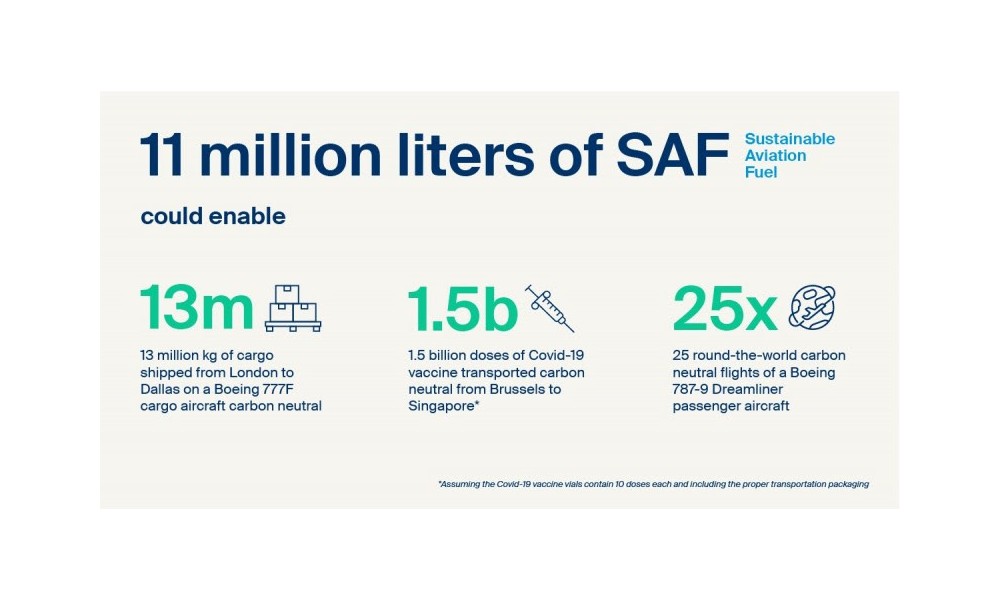
Kuehne+Nagel, American Airlines join forces to deploy over 11 million litres of SAF
Kuehne+Nagel and American Airlines have partnered to act on climate change by inking a deal to deploy more than 11 million litres of sustainable aviation fuel (SAF).

Kuehne+Nagel and American Airlines have partnered to act on climate change by inking a deal to deploy more than 11 million litres of sustainable aviation fuel (SAF). 11 million litres (3 million gallons) of SAF would enable a Boeing 787-9 Dreamliner passenger aircraft to fly 25 times carbon neutral around the world or transport 13 million kg of cargo from London to Dallas on a Boeing 777F cargo aircraft. Kuehne+Nagel customers can now benefit from immediately available SAF solutions to avoid CO2 emissions of their air freight globally.
As part of the Net Zero Carbon programme, Kuehne+Nagel is proactively advancing its sustainable and scalable solutions to decarbonise air freight shipments. SAF is currently the most effective measure to significantly reduce the environmental footprint of aviation and foster transition to carbon neutrality. With the newly launched SAF offering, customers can power their products with alternative fuel directly via the logistics provider. Kuehne+Nagel portfolio of sustainable solutions will be further expanded with innovative and easy shipping options.
Yngve Ruud, member of the management board of Kuehne+Nagel, responsible for air logistics, comments: “The demand for environmentally friendly air logistics services is certainly on the rise. Through the innovative collaboration with American Airlines, we commit to support our customers' sustainability ambitions and contribute to the development and widespread use of alternative aviation fuels. We encourage all the industry stakeholders to join us in bringing carbon neutral flying one step closer.”
“We are excited to partner with Kuehne+Nagel in our effort to reduce the impact of aviation on our planet,” said Jessica Tyler, president of American Airlines Cargo and vice president of operations innovation and delivery. “This market-based solution will help create a cleaner supply chain and is aimed at accelerating our transition to a low-carbon future.”
SAF is a key element to mitigate aviation's impact on climate change. While the carbon lifecycle of fossil fuels is linear and releases additional carbon emissions, the carbon lifecycle of SAF is circular aimed at re-using waste or biomass and emissions produced. The result of SAF use is a significantly reduced amount of additional carbon introduced into the global carbon cycle of at least 75 percent. To ensure full carbon neutrality when using SAF, the remaining carbon emissions generated during production, processing and transport of SAF can be avoided by overcompensating the amount of jet fuel kerosene replaced by SAF up to a ratio of 1:1.33 or offset via Kuehne+Nagel through carbon reduction projects that carry currently the highest quality certification “Verified Carbon Standard (VCS)” and/or “Gold Standard (GS)”.

